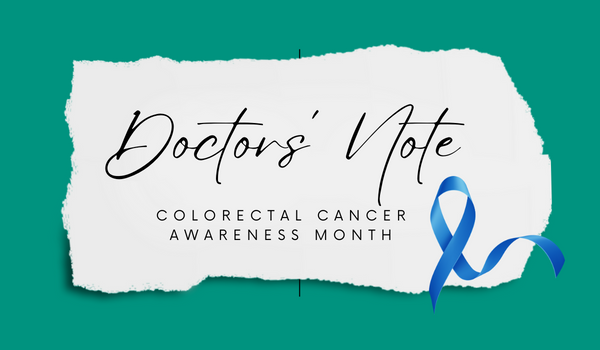Doctors' Notes
Doctors’ Note – March 2024

Dear Southcoast Health Community,
This month presents an opportunity to educate our patients about colorectal cancer and highlight the significance of March as Colorectal Cancer Awareness Month. It’s also an important reminder for all of us to take proactive steps in the understanding and prevention of this disease.
Colorectal cancer is the third most common cancer in both men and women in the United States, with rates highest among men and people assigned male at birth (AMAB), Black Americans and older adults. The term “colorectal” is used to describe the two lower areas of the digestive tract affected by the cancer: the colon (the first and longest part of the large intestine) and the rectum (the last several inches of the large intestine).
Screenings Save Lives
Thanks to early detection through screenings, cases of colorectal cancer among people age 50 and older have steadily decreased over the past couple of decades. However, over the past 15 years, the number of people age 20-49 diagnosed with colorectal cancer has increased by about 1.5% each year.
The recommended age for colorectal screenings has been lowered from 50 to 45, but that doesn’t mean that those under 45 should avoid screenings, especially when experiencing warning signs such as:
- Blood in your stool
- Persistent abdominal pain or discomfort
- Changes in bowel movements
- Sudden weight loss
- Fatigue
Many things may stand in the way of colorectal cancer detection in younger patients. Some are uncomfortable talking about bowel problems to friends and family, let alone doctors. They consider themselves generally healthy and may downplay their symptoms. They may also be hyper-focused on work and family with little time to spare.
But the stress that can come with a busy life can also lead to some unhealthy lifestyle habits that may increase risk. The good news? Making a few changes now may help lower that risk:
- Quit smoking
- Limit alcohol use
- Maintain a healthy weight
- Eat less red meat, processed meats such as bacon, sausage, deli meats and other processed foods
- Exercise – any kind of physical activity has benefits
Lifestyle changes can be challenging. If you could use some help, our providers and resources at Southcoast Health are here for you.
The Bottom Line
Screenings save lives. There are multiple methods of testing for colorectal cancer based on symptoms and medical history – and treatments have improved over the years.
Don’t be shy! Talk to your doctor about any concerns, and follow the recommended screening guidelines. Screening can lead to early detection when the cancer is likely easier to treat.
Colorectal cancer is preventable. This month, let’s work together to raise awareness.
Wishing you good health,

Medical Director of Gastroenterology
